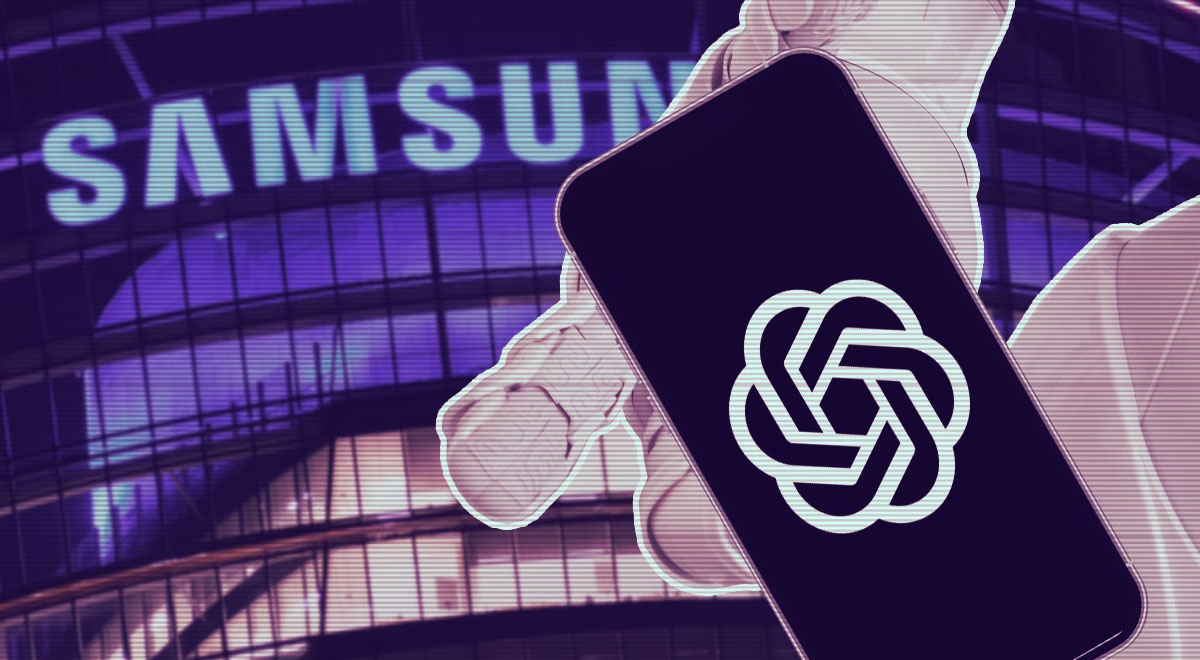ChatGPT’s Samsung Leak: A Wake-Up Call for the Future of AI and Data Security
How One Mistake Shattered Assumptions About AI and Corporate Responsibility

In 2023, Samsung Semiconductor found itself at the center of an embarrassing, yet critical, lesson for the tech world. Engineers seeking quick fixes to technical challenges shared sensitive company information—including source code, internal meeting notes, and hardware-related data—with ChatGPT, a public AI tool. Let’s not sugarcoat it: this wasn’t just a slip-up; it was a colossal oversight. Within a month, Samsung had three reported cases of proprietary information leaking into the hands of an external organization. Let that sink in.
How does a tech giant mess up this badly?
The consequences were catastrophic. Proprietary data—intended to remain under Samsung's ironclad control—was now at the mercy of OpenAI. Yes, the same OpenAI that retains user inputs to improve its models. Did no one read the fine print? Or did the allure of cutting-edge AI blind Samsung to the obvious risks? Either way, Samsung’s intellectual property, the lifeblood of its innovation, was potentially exposed to competitors. In response, Samsung swung the pendulum hard the other way, banning external generative AI tools altogether and scrambling to build an in-house AI solution. But is that enough?
This scandal exposes a glaring truth: Companies are racing to integrate AI, but few truly understand its risks. So, let’s tear down the walls of complacency and dive into the lessons that must be learned from this fiasco.
1Stop Ignoring AI’s Data Hunger
Here’s the deal: AI tools like ChatGPT don’t just process your data—they consume it, retain it, and improve themselves with it. Yet, countless businesses recklessly feed these tools without questioning how their data is handled. Samsung’s engineers, knowingly or not, served up their secrets on a silver platter. How did this happen? Because no one stopped to ask the right questions.
The Fix:
-
Train employees to think before they type. Does this data belong in a public AI tool?
-
Enforce mandatory education on AI data handling and the fine print of tool usage.
2Corporate Policies Are Not Optional—They’re Lifelines
Why did Samsung’s engineers even have access to public AI tools for sensitive tasks? Because there weren’t clear policies in place to stop them. No guardrails, no oversight—just open access to disaster.
The Fix:
-
Draft AI policies that aren’t just suggestions but enforceable rules.
-
Ban the sharing of sensitive or proprietary data with any external AI tool. Period.
3Public AI Is Not Your Savior—Build Your Own
Let’s call it what it is: relying on public AI for sensitive tasks is shortsighted and reckless. Samsung learned this the hard way. Public platforms are great… until they’re not. If you’re serious about protecting your data, stop outsourcing your problem-solving to tools that don’t work for you.
The Fix:
-
Invest in private AI systems tailored to your needs. If Samsung can scramble to build its own AI post-leak, why couldn’t they have done it before?
-
Work with vendors to create custom solutions with airtight data retention policies.
4Gatekeeping Is Good—Control Access
The idea of unrestricted access to AI tools sounds innovative, but in practice? It’s a security nightmare. Samsung’s engineers weren’t the villains here—lack of access control was. Why weren’t there stricter safeguards in place?
The Fix:
-
Restrict AI tool usage to vetted personnel only.
-
Implement monitoring systems that flag risky behavior before it spirals out of control.
5Risk Assessments Are Not Optional
Samsung’s incident wasn’t just a mistake—it was a predictable outcome of poor risk management. Why wasn’t this caught earlier? Because no one thought it through.
The Fix:
-
Conduct rigorous risk assessments before deploying any AI tool.
-
Establish a culture of continuous improvement to adapt to evolving risks.
6Prepare for the Worst
What’s your plan when (not if) things go wrong? Samsung clearly didn’t have one. Without an incident response plan, you’re flying blind when disaster strikes.
The Fix:
-
Develop a comprehensive incident response strategy that’s tested, not theoretical.
-
Train teams to respond to AI-related breaches swiftly and effectively.
7Responsibility Is a Culture—Not a Buzzword
Too often, companies treat responsibility like a box to check. Samsung’s engineers weren’t inherently careless—they operated in a system that failed to make responsibility a core value. How does a company with Samsung’s resources not foster a culture of accountability?
The Fix:
-
Reward employees who demonstrate caution and critical thinking.
-
Foster open communication about AI risks, making it safe to raise red flags.
Innovation Without Security Is a Time Bomb
The Samsung leak is a glaring reminder that innovation is meaningless without security. AI is not a magic wand—it’s a tool, and like any tool, it’s only as safe as the hands that wield it. Samsung’s misstep could have been avoided with proactive planning, clear policies, and a culture of accountability.
But here’s the bigger question: How many companies are next in line for the same mistake? The race to adopt AI is on, but it’s a marathon, not a sprint. You can’t cut corners when the stakes are this high.
Closing Provocation: AI has the power to transform industries, but who is holding it accountable? Samsung’s debacle isn’t just their lesson—it’s ours. Will we learn from it, or are we doomed to repeat it? The choice is ours to make.
Should Clients Join Your Daily Standups?
When Inclusion Builds Trust—and When It Breaks Your Flow
How to Manage Projects with Tight Budgets
Maximizing Value When Financial Constraints Are Tight
Deadlines Are Mostly Lies: The Costly Truth About Project Timelines and Budgets
Why Rigid Deadlines Hurt Productivity and Cost More in the Long Run





